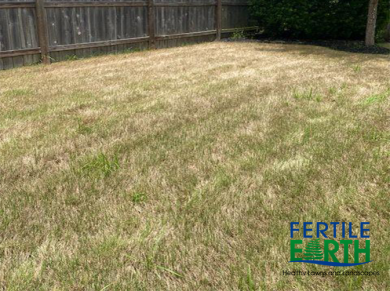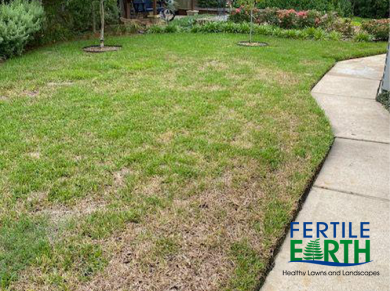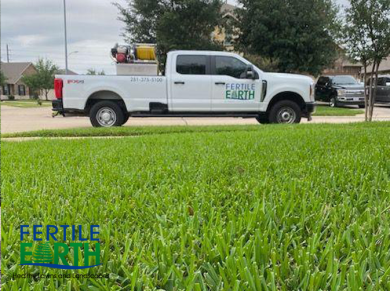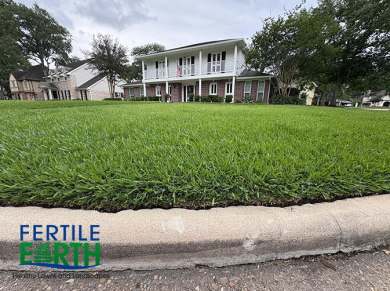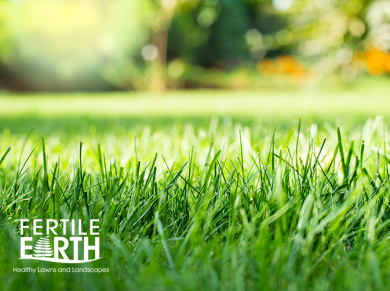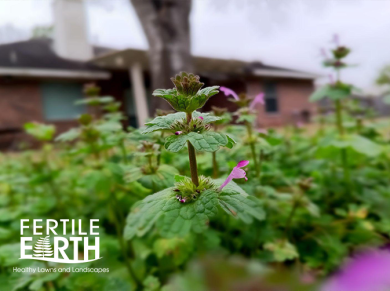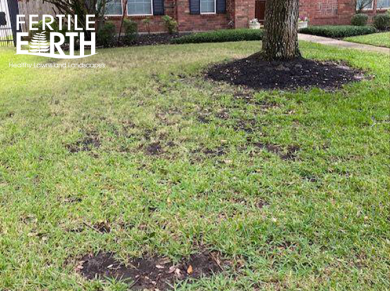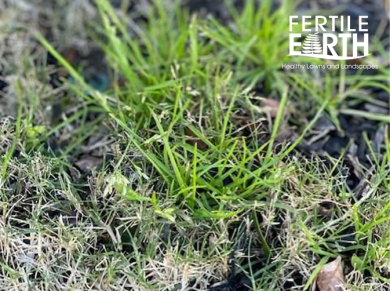Newsletter
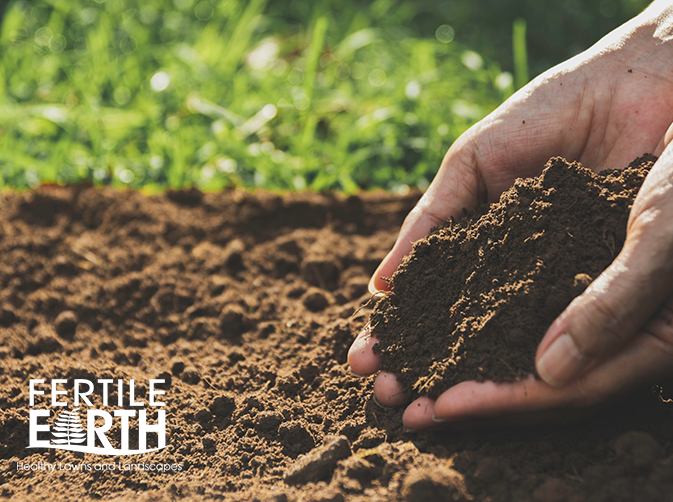
Lawn Winterizer and Soil Conditioner
Grass is beginning to grow slower as it prepares for winter dormancy. In order to do this, it must have the proper nutrients stored. This can be achieved by feeding the soil with an organic soil conditioner. A good “winterizer” application has a few goals. Improve the stress tolerance of the plant, provide nutrients the plant can store, and improve the soil ecosystem.
Increase the stress tolerance of your grass
Winter is a stressful time for grass. Thus, it would make sense to bolster a plant's stress tolerance in the weeks before. One way to do this is through potassium. Potassium, utilized by grass in the form of potash, is an essential nutrient for plant hardiness. Potassium strengthens cell walls which provide protection from winter damage and limits the loss of nutrients.
Potassium phosphite is also beneficial for toughening up your grass before winter. Phosphite works by triggering a natural stress response in a plant. The plant raises its defenses, making it more capable of fighting disease and other types of stress.
Improve the Soil
The health of your lawn is directly related to the health of your soil. It can be easy to overlook this. Afterall, we spend most days looking up and around, not beneath our feet. If we were to stop and take a very close look, think microscopic, we would find a whole world of organisms. These microbes are essential to converting inaccessible nutrients into something plant available and protecting plants from disease.
Microbes feed on organic matter. By applying an organic soil conditioner, we feed the microbes to increase the population and activity. This aids in creating a more diverse and healthy soil ecosystem A.K.A an overall healthier soil. A healthy soil is able to fight off harmful bacteria and fungi that may lead to plant disease. Increase in microbial activity is also beneficial for thatch breakdown, which is an area that can harbor detrimental fungi and bacteria.
The soil conditioner also provides beneficial nutrients for the grass that will stimulate root growth and strengthen plants. Deeper roots allow for greater stress tolerance during dry spells, which usually occur in summer and winter. Encouraging deeper root growth now will pay dividends throughout the life of your lawn.
Brandon Spiteri
O: 281-375-5100
Fertileearthtexas.com
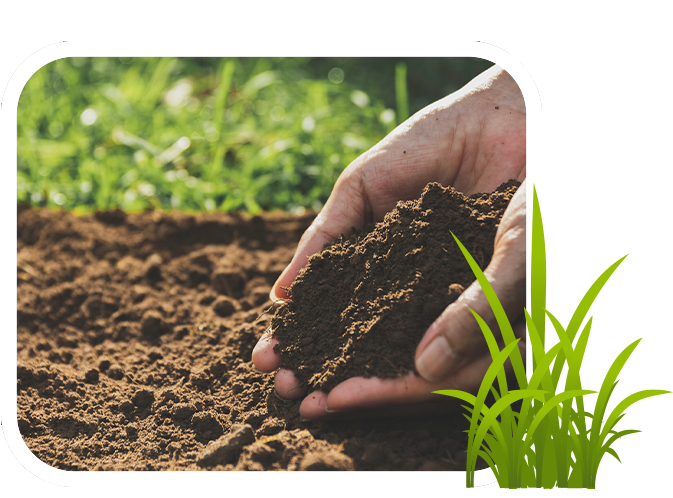
Water and mowing recommendations
Water and mowing recommendations
The goal is to make your lawn sufficiently watered before entering winter dormancy. This is because a drought stressed lawn is more susceptible to winter freeze damage. If your lawn is currently drought stricken, rehydrating your lawn before winter arrives is key. Run the irrigation 2 to 3 days in a row before returning to a normal schedule of 1-2 days a week.
Here is a general irrigation run time recommendation:
Lawn Sprays: 10 - 15 minutes per zone
Lawn Rotors: 20 - 30 minutes per zone
Shrub Sprays: 5 - 10 minutes per zone
Mowing can be done bi-weekly because the lawn growth has significantly slowed. Proper mowing heights should still be followed.
Mowing height recommendations:
St. Augustine: 3-4 inches
Bermuda / Zoysia: 1 ½ - 2 ½ inches
REMINDER: As leaves drop in the yard, avoid repetitively using a leaf blower to move leaves from the yard. This will damage the lawn over time.




